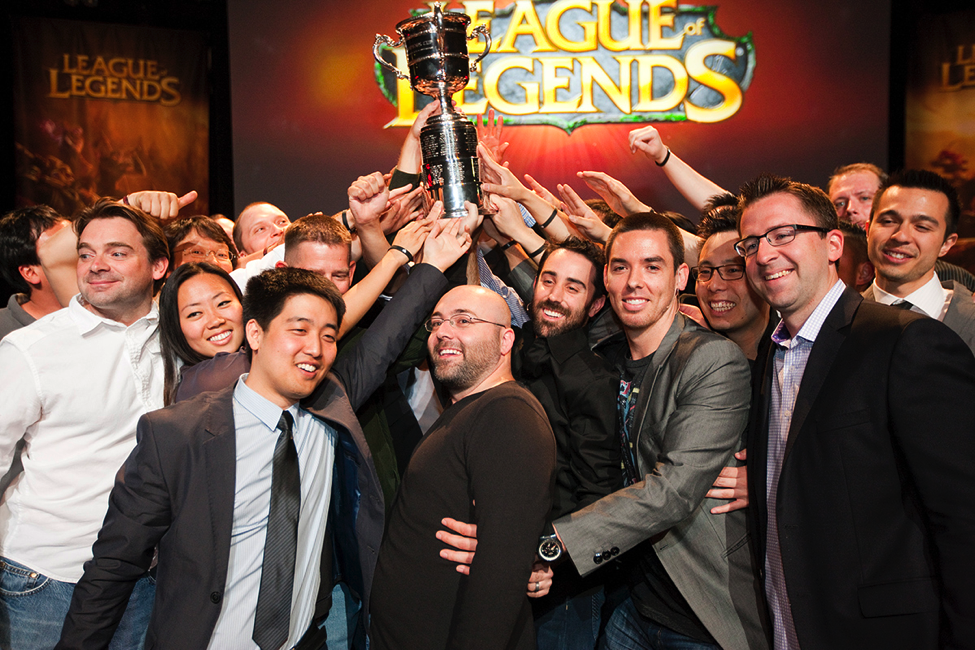

Riot Games is the company behind one of the most played esports games (and one of the most popular games for betting on esports), League of Legends. They are responsible for the growth of the competitive and professional play of LoL, and in the esports industry, they take the lead by a mile. Riot has played a huge role in developing everything that esports are today. However, it is because of Riot that three of the most beloved LoL casters did not participate in casting the 2016 Mid-Season Invitational in Shanghai this year.
Erik "DoA" Lonnquist, Christopher "MonteCristo" Mykles, and Christopher "PapaSmithy" Smith are three very prominent casters working under OnGameNet. This past March, the three were extended invitations to cast the 2016 MSI. However, the rates offered by Riot were not high enough for the three casters, who work on a freelance basis. After attempts at negotiating a better rate, the three were unable to agree to rates that were acceptable to them, and had to decline the invitation completely. While the industry has its own economic needs, fans of the casters were surprised that when Riot had succeeded in cultivating an audience and brand around these casters, they would be so quick to let them go instead of offering an increased compensation. After all, isn’t the whole enterprise to get personalities to be built up and grow the sport with them?
In a joint public announcement, the three casters explained their situation and why they would not be working the MSI. In the statement, they explained that after doing some research, they found that they were not being offered an industry standard rate. This is what they had to say:
“We set out at the beginning of this year to determine average freelance rates in the esports market and conducted a survey of contracts received by casters across titles including Counter Strike: Global Offensive, DotA 2, Starcraft 2, Halo 5, and Hearthstone. We were surprised to discover from our peers that Riot’s offer to us was approximately 40% to 70% of the rate received by talent for major events in all of these titles.”
Understandably, as freelancers, the three casters really had no choice but to turn down the job. As one of the biggest esports organizers, and the developers of one of the biggest games of the decade, it seems more than a bit strange that Riot was unable (or unwilling?) to offer standard pay rates.
Within the esports industry, it is well known that money can be tight for some team members and owners, but for one of the biggest names in esports to offer such low rates for high-profile casters to cover their second biggest tournament of the year seems… odd. Granted, Riot has their own on-staff casters to cover these events, and perhaps have no need for freelance casters such as Lonnquist, Mykles, and Smith. But if they were only going to offer 40% to 70% of what other games offer—nowhere near competitive—why even bother?
The bigger issue here is not that these three casters turned down Riot’s invitation, but that Riot would offer such a low-ball rate in the first place. Sure, Riot may not have even needed to offer them the job, and may have been doing it out of respect or generosity. Or maybe they just didn’t realize how high competitive rates for casters had risen. Whether or not what they did was strictly unethical, Riot has created a new image of themselves in the eyes of freelance casters, and plenty of esports fans in general. As freelancers, many casters can simply look for work elsewhere, so hopefully Riot will reconsider its rates when it has trouble securing the casting talent it needs.
In the meantime, Riot’s actions have resulted in some enmity between themselves and the fans and casters, which could negatively affect the industry as a whole. While casters will look for work elsewhere, they will be missing out on one of the biggest corners of the esports industry. And with this lack of widespread, effective casting, Riot will be covered less, and they will suffer, as will their viewers. Riot and their casters need each other.
Riot’s refusal to negotiate a fair rate could have more far-reaching consequences. The support that Lonnquist, Mykles, and Smith have received following their decision may well result in Riot being forced to raise their rates, and esports casters to be paid rates that are more reflective of the value of their services. After all, if esports casters are going to be working prestigious events such as the Olympics and ELeague, they should be making fair wages for the value they provide to those profiting from their expertise.
It is understandable that Riot would be hesitant to pay serious money to people doing a job most of us would gleefully do for free. However, if the company wants their audience to grow, they need to realize that building up their own celebrities is a worthy expense. Not doing so is shooting themselves (and the industry as a whole) in the foot.